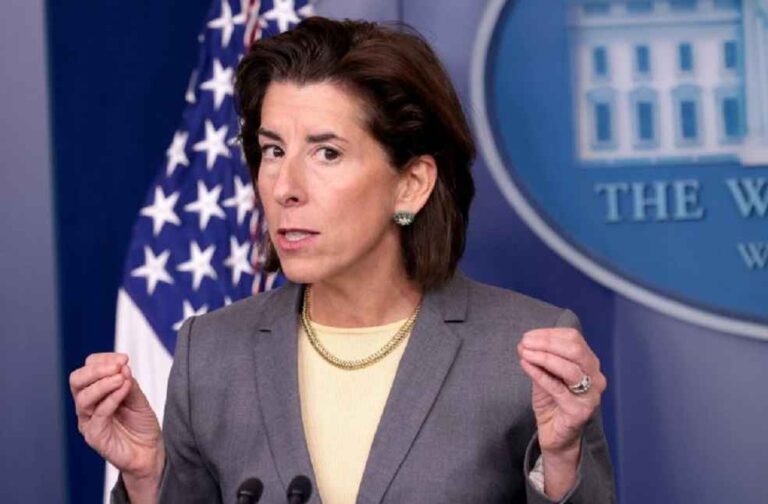US Commerce Secretary Gina Raimondo recently announced potential drastic measures against Chinese internet-connected cars, including possible bans or severe restrictions. This declaration follows a national security probe initiated by the Biden administration in February, assessing whether vehicle imports from China represent a significant threat to US national security due to their connectivity features.
Chinese officials and industry experts have strongly criticized the US stance, condemning it as an unwarranted politicization of trade issues with broad implications for the global automotive supply chain. Wu Shuocheng, a seasoned auto industry analyst, dismissed claims that Chinese vehicles pose security risks as ‘Ridiculous,’ given their scant presence in the US market. Wu argued such measures distort fair competition and could severely disrupt the global automotive industry and supply chains.

Echoing this perspective, China’s Foreign Ministry spokesperson Lin Jian argued that using national security as a pretext for economic decoupling could destabilize global industrial and supply chains, disrupt the international trade order, and ultimately damage the US’s own economic interests. Lin called on the US to uphold its commitments to fair economic practices and not impede China’s economic progress.
The conversation took a more confrontational turn with remarks from another Chinese Foreign Ministry spokesperson, Mao Ning, who accused the US of propagating a false narrative regarding the security risks of Chinese vehicles. Mao pointed to the global popularity of Chinese-made cars, attributing it to technological innovation and superior quality, rather than unfair practices. He contrasted this with what he described as US protectionist measures and discriminatory policies aimed at blocking Chinese access to the US market.

This ongoing dispute highlights a broader geopolitical battle between the US and China over technology and trade supremacy, positioning both nations in a complex global market. As tensions continue to build, the international community remains vigilant, recognizing that the outcomes could reshape global trade dynamics and technological progress in the automotive sector.
EV WORLD | Nio and GAC Group Partner to Innovate EV Charging, Battery Swapping Tech





